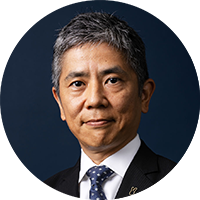Coach's VIEW is a business column authored by executive coaches in COACH A, aimed at providing valuable insights and effective approaches for leveraging coaching to foster organizational and leadership development. The column draws on the latest coaching trends and data, as well as insights from notable global publications on coaching.
Unpacking the Misuse of Self-Responsibility

"I believe I am accountable for not achieving the growth I had anticipated."
Upon hearing this sentiment from a new graduate in their second year at the company, Kevin, the executive overseeing human resource development, pondered, "Perhaps I am approaching their training incorrectly."
Kevin conducted interviews with employees who had undergone in-house training within their first three years at the company with the aim of enhancing the training system. He encouraged honesty, even about challenging topics, to refine future training programs.
The feedback gathered echoed the initial sentiment mentioned in this article. Surprisingly, every employee shared similar perspectives. This consistency prompted Kevin to reflect on the underlying reasons behind this common feedback.
Accountability and Victim Mentality
After completing a coaching program at COACHACADEMIA, Kevin embraced the concept of "accountability" learned during the course. He integrated accountability as a core value within his company, emphasizing it through employee training sessions.
Accountability entails individuals taking ownership of their actions and responsibilities, proactively addressing challenges with the understanding that they play a role in achieving desired outcomes. This mindset is referred to as being in an "accountable state." Conversely, the opposite of accountability is a "victim state," characterized by attributing one's inability to achieve goals to external factors or others, leading to a passive mindset that avoids self-initiated change. In our daily lives, we often transition between these two states of "accountability" and "victimhood," illustrating the dynamic nature of our attitudes and responses to challenges.
Is "Everything is Self-Responsible" Truly Meaningful?
During Kevin's employee training sessions, the concept of accountability resonated with many employees. Given the relatively small number of employees, the integration of this concept into business operations proceeded faster than expected. However, a particular issue arose that left him unsettled. Some employees began labeling expressions as "victim statements" and criticized others for their attitudes, deeming them inappropriate. This reaction raised concerns about the appropriateness of using such language in this context.
Upon hearing the initial words of the new employee, Kevin's suspicions were confirmed. Subsequently, Kevin dedicated more time than initially intended to delve into the stories of the new employees, seeking a deeper understanding. Eventually, the new employees opened up about the issues they faced with the current training system. "I wish you had brought up this concern earlier," Kevin expressed to the employee. In response, the employee remarked, "If I had mentioned it earlier, you would have labeled me as a victim employee who shifts blame onto external factors."
Accountability involves considering "what you can do" rather than assigning blame. Yet, solely emphasizing the avoidance of blaming external factors can create the misconception that accepting full responsibility for everything is ideal. This can lead to a misuse of self-blame.
Thinking Together, Not Pointing Out Responsibility
Accountability hinges on the question, "What can I do?" It involves actively seeking the best course of action, taking initiative, and owning the outcomes of one's decisions. When someone remarks, "That sounds like victimhood," they are essentially highlighting a lack of responsibility. However, merely pointing this out may not provide clear guidance on how to proceed. Instances of "accountability misuse," as seen in Ken's organization, are not uncommon. Many organizations, while endorsing accountability or "self-responsibility," may unknowingly fall into patterns of misuse. While promoting accountability and self-responsibility is commendable, their misapplication can have detrimental effects on an organization's dynamics.
Independent researcher Shu Yamaguchi highlighted in the Harvard Business Review a significant correlation between the level of "psychological resistance to challenging or disagreeing with superiors" and a country's GDP per capita or innovation ranking. Essentially, cultures where individuals are less inclined to challenge or disagree with their superiors may experience lower levels of organizational innovation.
When a frontline employee courageously challenges a statement or assertion, the boss's response, "Isn't that playing the victim?" can create an overwhelming sense of pressure.
Ken's experience serves as a cautionary tale. In his case, the opportunity to enhance the education system was nearly lost due to such dynamics. Instead of directly pointing out or criticizing someone displaying a lack of accountability, I suggest a collaborative approach. Let's consider the situation together and explore potential actions we can take. This offers a positive opportunity for shared accountability and growth for both parties involved.
【REFERENCE】
Yamaguchi, Shu "What Constitutes an Innovative Organization: A Study on Clear Sense of Direction, Diversity, and Openness" Harvard Business Review Online, December 26, 2012
*Regardless of profit, non-profit or intranet, secondary use such as copying, diversion, selling etc. is prohibited without permission.
Language: Japanese

